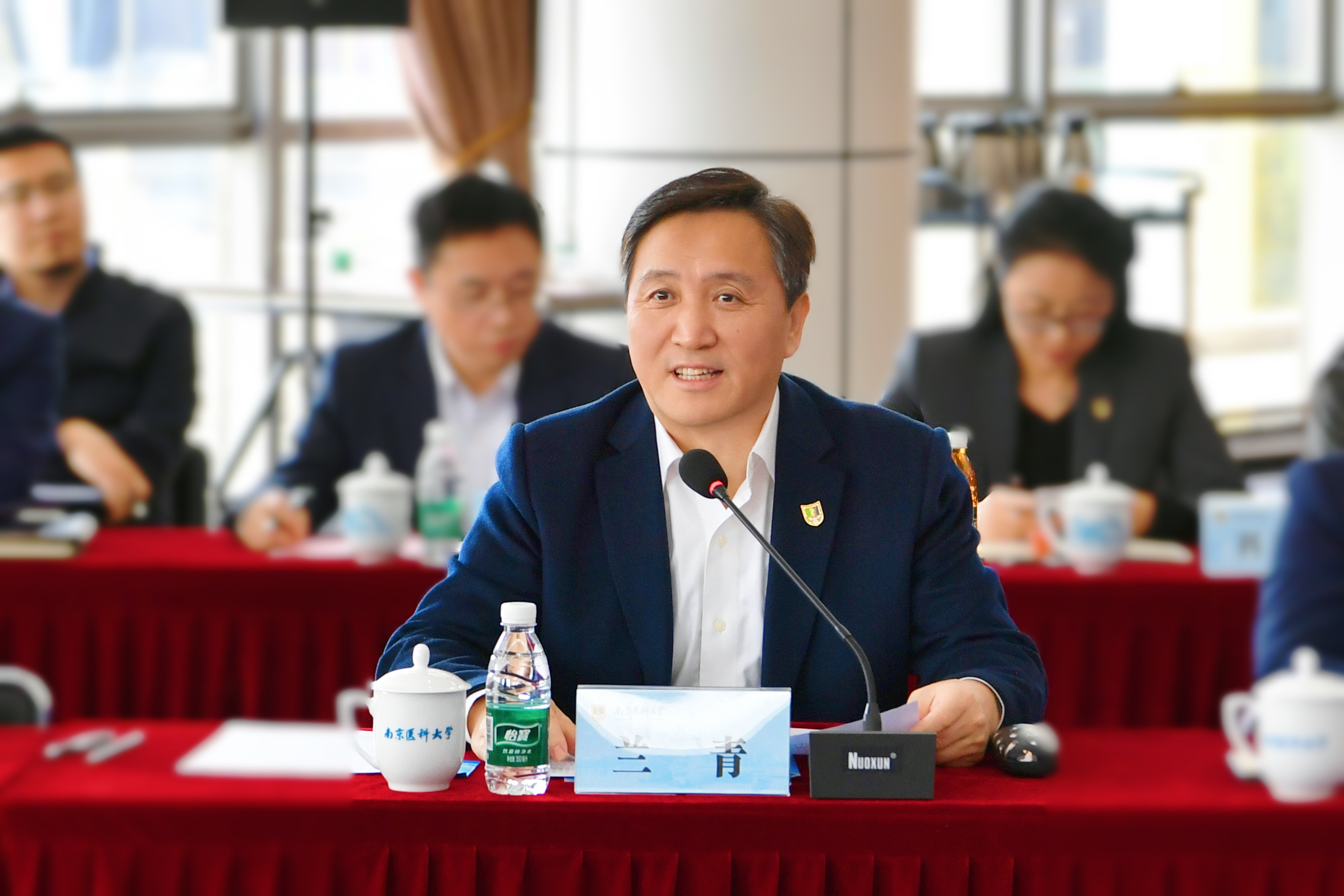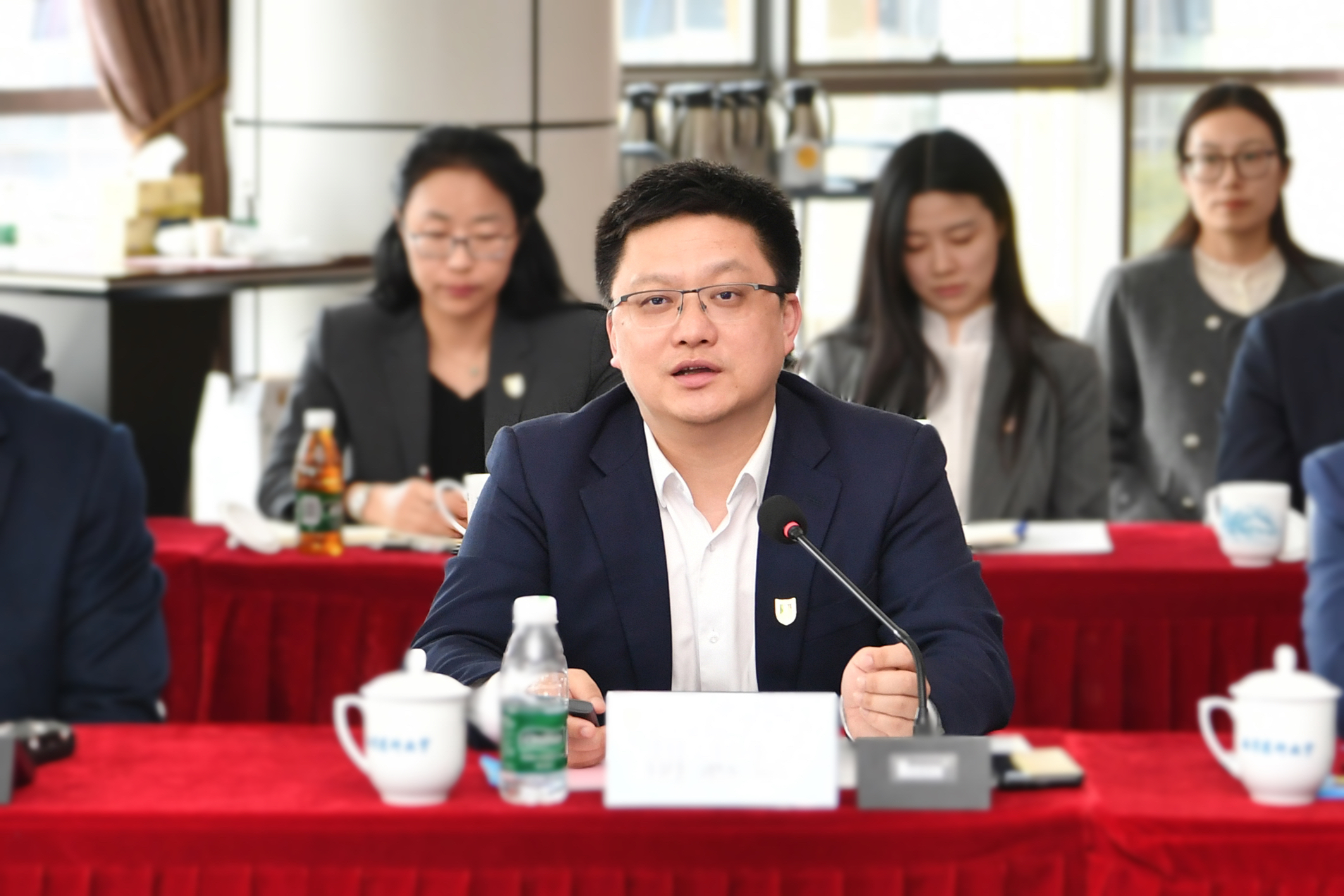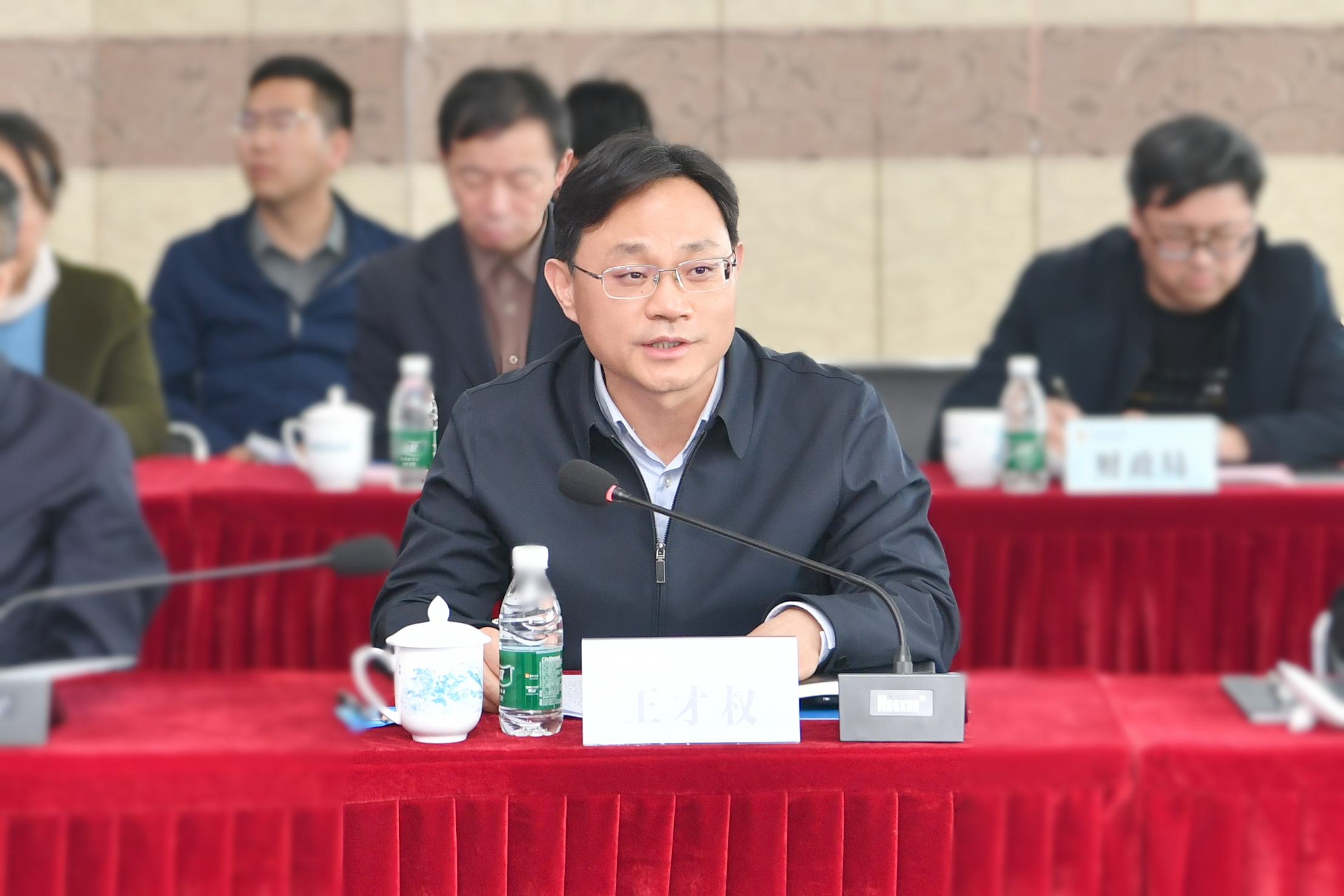On April 3, Nanjing Medical University (NMU) and the People’s Government of Jiangning District, Nanjing, held a signing ceremony at the Dexin Building on NMU’s Jiangning Campus, marking a new chapter in their strategic collaboration. The event was attended by Lan Qing, Secretary of the CPC NMU Committee; Hu Zhibin, NMU President; Lin Tao, Secretary of the CPC Jiangning District Committee; and Huang Chengwen, Governor of Jiangning District. Also present were District leaders Wang Caiquan, Qiu Yiping, and Zhou Qiang; NMU leaders Shen Ruilin, Yue Guofeng, and Shen Lizong; along with representatives from relevant departments of the Jiangning District Government and heads of NMU’s functional offices, schools, and affiliated hospitals. The ceremony was hosted by NMU Vice President Shen Lizong.

In his address, Secretary Lan Qing highlighted the strong foundation of collaboration between NMU and Jiangning District. He noted that the signing not only reinforced their longstanding partnership but also marked a significant step toward integrating talent, innovation, capital, and industrial chains within the healthcare and pharmaceutical sectors. This initiative serves as a concrete response to General Secretary Xi Jinping’s call to “take the lead in promoting the integration of scientific and technological innovation with industrial innovation”.
Secretary Lan Qing affirmed NMU’s continued commitment to innovation-driven development. The university will further enhance its collaborative framework involving government, academia, research institutions, and industry, while accelerating the high-quality development of the Tianyuan Innovation Center. By aligning closely with regional strategies for the biomedicine and life and health industries, NMU will fully leverage its disciplinary strengths, research capacities, affiliated hospitals, and alumni-led enterprises to explore new, highly integrated models of innovation.
These efforts aim to support the planning and growth of strategic emerging industries and future-oriented sectors in the medical field, foster breakthroughs in cutting-edge medical technologies, and facilitate the effective translation of research outcomes. Together, NMU and Jiangning District will open a new chapter of mutual development and make meaningful contributions to the region’s high-quality growth.

President Hu Zhibin delivered a keynote speech titled “United in Purpose, Dedicated to Progress”, offering a comprehensive overview of NMU’s development, its accomplishments in university-district collaboration, and its vision for the future. He emphasized the role of the Tianyuan Innovation Center as a pivotal platform for advancing strategic alignment and supporting regional development.
President Hu noted that the new agreement aimed to refine the collaborative mechanism, clarify roles and phased objectives, and inject fresh momentum into the comprehensive strategic partnership. He emphasized the university’s commitment to seizing this opportunity to enhance its collaborative model, focusing on demand-driven research, joint problem-solving, and shared resources. Key priorities include the integration of basic research and clinical application, the cultivation of high-level medical professionals, and the promotion of interdisciplinary collaboration between medicine and engineering. The Innovation Center will concentrate on core initiatives such as clinical innovation, precision diagnosis and treatment of neurological disorders, and advancements in the nutrition and health industry.
NMU aims to accelerate the progress in cutting-edge disciplines, key technological breakthroughs, the commercialization of research outcomes, and industrial incubation. In close partnership with Jiangning District, NUM seeks to build a high-level hub for clinical medicine and a new landmark in the life and health industry--marking a meaningful contributions to both national strategic goals and regional economic and social development.

Vice Governor Wang Caiquan provided an overview of the ongoing cooperation between NMU and the local industrial park, as well as the specific implementation plans for the Tianyuan Innovation Center. He highlighted that the Jiangning High-Tech Zone would strengthen coordination, adopt phased management strategies, and integrate policy and resource support to ensure the efficient and orderly advancement of the Tianyuan Innovation Center. He further emphasized the district’s commitment to deepening the integration of NMU’s resources with those of the district, fostering a collaborative innovation ecosystem. The focus will be on addressing key technological challenges and supporting industrial incubation in the biopharmaceutical sector. These efforts aim to seamlessly integrate the Innovation Center into the regional industrial chain, driving the growth of the healthcare industry and providing a solid foundation for Jiangning District to become a national hub for future industries.

Secretary Lin Tao commended NMU’s significant role in supporting regional development. He emphasized that the goals of NMU and Jiangning District are closely aligned, particularly in the areas of biopharmaceutical research, technological breakthroughs, and industrial application, with a strong foundation already laid for their collaboration. The Tianyuan Innovation Center, he noted, would serve as a strategic platform for advancing university-district synergy and capturing the frontier of medical science and technology. The CPC Jiangning District Committee and the Jiangning District Government are committed to providing comprehensive support, including policy backing, resource coordination, and service assurance. Lin also called for building a collaborative development model led by the District Government, driven by universities and research institutions, and supported by industry participation. He expressed his hope that both parties would focus on the biopharmaceutical sector, address the core needs of public health, and innovate cooperation mechanisms. This will accelerate the integration of education, research, healthcare, and industry. Together, they aim to establish a robust life and health innovation ecosystem and create a national model of cross-sector collaboration—transforming the region into a new high ground for the health industry and jointly writing a new chapter of “mutual growth between education and local development, and shared prosperity through science and industry”.

During the signing ceremony, District Governor Huang Chengwen and President Hu Zhibin signed the cooperation agreement for the joint construction of the Tianyuan Innovation Center on behalf of both parties. Secretaries Lin Tao and Lan Qing were present to witnessed the signing.
(Drafted by Li Yang; Photos by Ma Liping; Reviewed by: Yu Baolong and Lu Jia; Translated by Zhang Bei)



